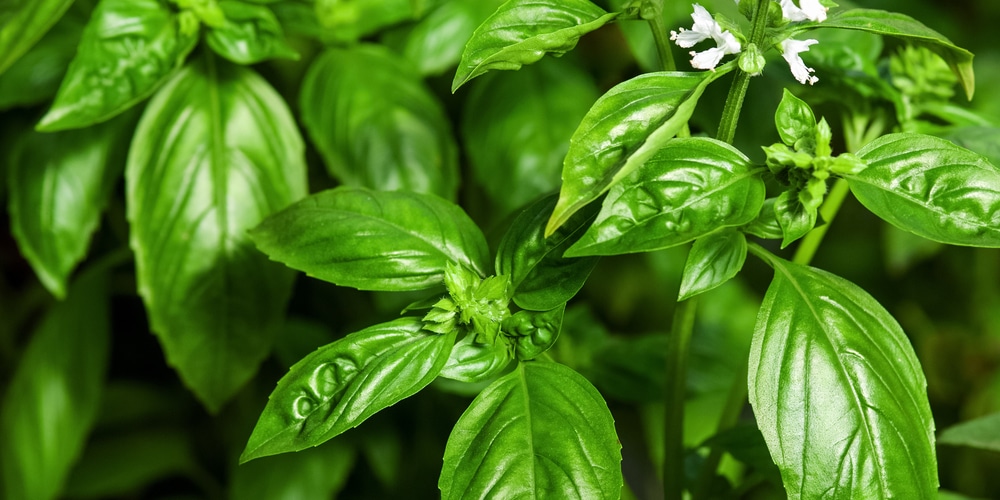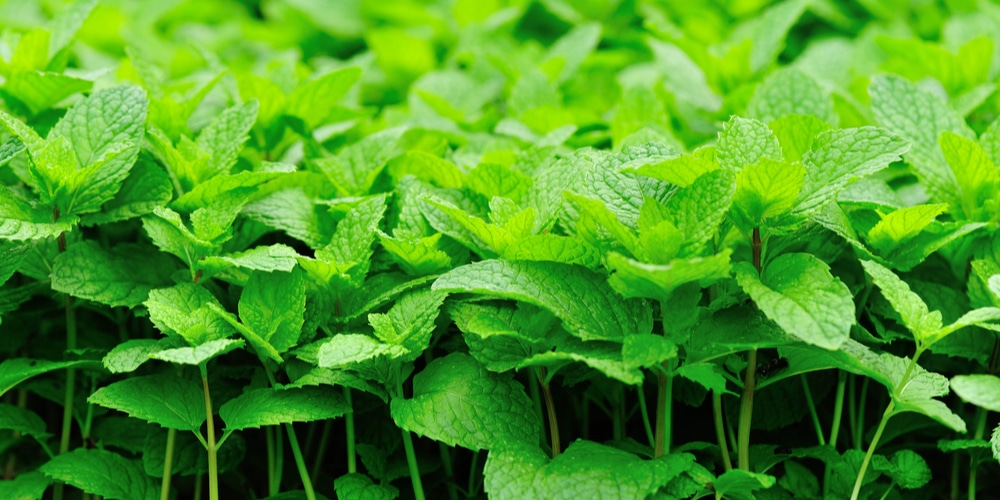Having perennial herbs in your garden not only increases the aesthetics of your property but also ensures you get a constant supply of delicious ingredients that will help you improve the taste of your dishes. Not all herbs enjoy the heat, but that doesn’t mean you cannot find perennials to grow in zone 8. To help you shed some light on what options you might have at your disposal, we put together this “Perennial Herbs Zone 8” essential guide.
Perennial Herbs Zone 8
Keep in mind that most herbs prefer full sun, so choose a suitable spot for your plants before planting. Also, do not plant your herbs next to species that require spraying: most pesticides and herbicides will damage your herbs. You can harvest herbs at any time, depending on your needs. And the best thing about perennials is that, with adequate care, they will come back each year. So, no need to buy your herbs at the supermarket!
But let’s look at which perennial herbs you can successfully grow in zone 8!
Lavender
Lavender is one of the best herbs to grow in zone 8. This attractive plant produces a pleasant scent and delicate purple flowers that will improve the looks of any corner of your yard. You can use its blooms in flower arrangements and create dried or fresh bouquets with this herb.
Native to the Mediterranean, lavender is hardy between zones 5 and 9, but you can find varieties suitable even to colder and warmer regions. In zone 8, you may have to prune your plant regularly. Indeed, it can become woody with age. Cutting old and unhealthy branches promotes more blooms and new growth.
Plant your herb in a spot that receives plenty of sunlight and with well-draining soil. Your garden will receive plenty of visits from pollinators such as bees and butterflies during the blooming season!
Some of the best types of lavender for zone 8 include French, Spanish, and Portuguese Lavender.
Rosemary

Like lavender, rosemary performs well in zone 8. This fragrant herb is native to the Mediterranean and grows as an evergreen perennial shrub in warm regions. You can use rosemary in several dishes, especially when cooking meat, fish, or roasted veggies.
The plants do best in areas where the temperatures are high. Under ideal conditions, it can grow into a shrub about three feet tall (or more). Rosemary needs some management. Locate it in a container or prune it annually to keep it in shape and prevent it from overtaking your garden. Plant your herb under full sun and well-draining soil. Avoid leaving it wet for too long, as its roots will rot fast.
Spice Island and Tuscan Blue are among the best varieties for zone 8.
Sage

Sage is an easy-to-grow herb that adapts to various soil conditions and grows well in zone 8. The plant contains antioxidants and is rich in vitamin K: you can use it to flavor meat and bean dishes, the result will be delicious! Sage displays grayish leaves that grow dense and lush under ideal conditions.
You can find varieties that produce flowers in different colors: blue, white, purple, and pink. Sage needs full sun to thrive and won’t tolerate wet soils. Prune the old branches every spring to maintain your plant’s productivity and boost its growth.
Plant Pineapple Salvia or Grape Scented Sage if you like unique smells. Otherwise, Salvia Officinalis and Mexican Blue Sage are perfect for zone 8.
Basil

Basil is hardy between zones 5 and 10. Chefs love this warm-weather fragrant herb, and you should do it too! You can use it to make pesto or add flavor to your meat and pasta dishes. Under the ideal conditions, this plant will produce abundant foliage within weeks.
Keep harvesting its leaves to help your herb grow strong. Plant your herb in a location that receives at least six to eight hours of full sun per day to get the best results. Don’t forget to keep the soil moist, but not wet. Avoid using insecticides on this plant: they won’t do any good!
Mint

Mint is a fragrant perennial herb that will grow without your help under the ideal conditions. You can use it to make teas, add flavor to your dishes, or even in cocktails! However, you will need to confine its spread: plant mind in a container for best results. You can even use mint as a ground cover: its deep green color and dense foliage create a perfect backdrop to other plants!
Perennial Herbs Zone 8: Conclusion
Besides the herbs we included in this list, you can also successfully plant catnip, anise, chives, coriander, and cumin in zone 8. Don’t forget to check with each herb’s requirements to ensure you can offer it what it needs to thrive.
